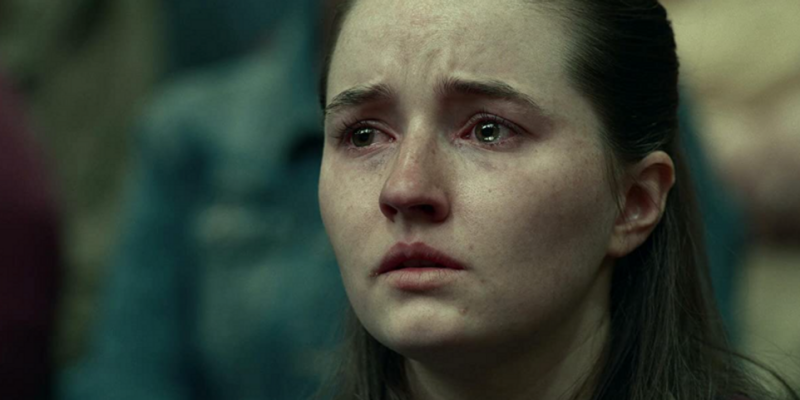Dopesick is a miniseries in eight episodes of approximately 60 minutes each. It tells the story of the opiate epidemic in the United States as no documentary, movie, or series has ever done before.
With great narrative quality and consistent dramatic performances, this series doesn’t disappoint. It’s inspired by real events which had extremely dramatic consequences in the United States.
It portrays the absolute evil of a family of millionaires and philanthropists. Alongside this story, it gives voice to the stories of the utter destruction of patients who became addicts.
In fact, a drug that was sold as the solution to chronic pain for millions of users ended up becoming the worst public health epidemic that the United States has ever had to face. Indeed, this is a painfully real series set in today’s world.
Dopesick: the story of a legal poisoning
The Dopesick miniseries is based on the non-fiction book of the same name by Beth Macy. As it unfolds, it examines the dire causes and effects of the opioid crisis unleashed across much of the United States by Purdue Pharma.
The company’s flagship product was dubbed a ‘non-addictive’ opioid pain reliever called OxyContin. Fictionalizing the details, but telling an objectively correct story, Dopesick is a powerful illustration of the power of business when the law fails to do its job: to protect the rights of the vulnerable.
How did they pass off an opioid pain reliever for a non-addictive drug?
The story behind OxyContin is that of Purdue Pharma and its sociopathic owners: the Sackler family. A family with inordinate power in the pharmaceutical industry.
The driving force behind the OxyContin campaign was Richard Sackler (Michael Stuhlbarg). He made the drug desirable for wider use by patients to replace a lucrative company patent, which was about to run out.
Richard learned everything he knew from his uncle Arthur Sackler’s business playbook. In 1960, he was commissioned by the pharmaceutical giant Roche to develop a marketing campaign for its anti-anxiety drug, the famous Valium.
Its effects were practically the same as those of other of its products, such as Librium. However, Arthur invented the idea of ‘psychic stress’ as a specific condition that only the anxiolytic, Valium, cured.
In other words, the Sackler family invented diseases or syndromes. Furthermore, they passed off their medicines as a cure for them, and also claimed they had better properties, even though they contained the same active ingredients. Indeed, with an aggressive and misleading commercial campaign, they managed to convince doctors and hospitals that their drugs were better for patients.
The OxyContin ‘revolution’
For Richard Sackler, the ambition to make OxyContin successful was linked to the need to surpass his relatives in his achievements and ambitions.
He not only wanted to market the drug statewide but also wanted to make it a worldwide success. To do this, he defended that the opioid drug had an addiction rate of less than 1 percent among its users. This oxycodone medication was covered in a slow-release coating that was supposed to provide twelve hours of relief without a ‘high’. In this way, its addictive power was supposedly limited.
Americans were finally promised the hope of living without pain. There was no reason for them to distrust this claim as the FDA had labeled the drug as safe. The boss who was responsible left a year later to work at Purdue for $400,000 a year.
When the drug’s effects were proved not to last twelve hours, the patients’ discomfort was renamed ‘breakthrough pain’ and the manufacturer’s suggestion was that they double the dose. Addiction was therefore already on the cards for these patients.
The heartbreaking story of patients turned addicts
What makes Dopesick totally different from other series and documentaries is its ability to show us the addictive and destructive capacity of opiates in any type of patient. This is demonstrated in the character of Samuel Finnix, played by Michael Keaton.
In what appears to be a statement in court, the doctor is devastated by the lives that his prescription has cut short forever. Given his unflinching appearance as an exemplary doctor in his community, nothing suggests that Samuel also ends up as one of the main victims of OxyContin.
On the other hand, Billy Cutler (Will Poulter) is a young and impatient representative of Purdue Pharma. He convinces Dr. Finnix to start treating some patients suffering from chronic pain due to strokes and work accidents.
The first OxyContyn prescription is given to Betsy (Kaitlyn Dever), who works in the mines with her father and suffers from a back injury. She can’t afford to miss work. Also, Betsy is a lesbian and needs to save up to live with her girlfriend in a place that’s more welcoming to the LQTBIQ+ community.
As she becomes dependent on OxyContin, Betsy’s story reflects the destruction of entire geographic areas due to the effects of the drug. Entire towns were devastated by citizen insecurity, robberies, and school and work absenteeism. These were in addition to the already pressing problems of unemployment and poverty.
The nightmare that still continues
The responsibilities of the Sackler family are brought to trial in the series. This is thanks to the actions of two assistant federal prosecutors and the deputy director of the Drug Enforcement Administration (DEA) Bridget Meyer (Rosario Dawson). Thanks to them, we come to understand the corrupt behavior of people who work in American public institutions.
We see how gaps in legislation allowed the regulators of the Drug Administration (FDA) to work for companies that they previously regulated. We also see how Purdue’s marketing strategy changed attitudes toward pain and pain management among the general public and the medical profession without any official agency intervening.
In reality, there was no punishment for these people and the family avoided any legal or financial responsibility. Furthermore, a judge has approved a bankruptcy plan for Purdue that will give the Sacklers broad legal immunity, allowing them to keep much of their fortune.
Opioids have killed 600,000 Americans and the Sacklers have profited from it. Danny Strong was the executive producer and writer of Dopesick. He wanted viewers to make their own judgment on the real Sackler family.
The series portrays the Sackler’s egregious and shocking behavior along with the failure of government institutions to intervene. In fact, we can only feel unspeakable disgust for this ‘successful’ family along with deep empathy for all those affected.
The post Dopesick: The Opioid Epidemic in the United States appeared first on Exploring your mind.



















Comments